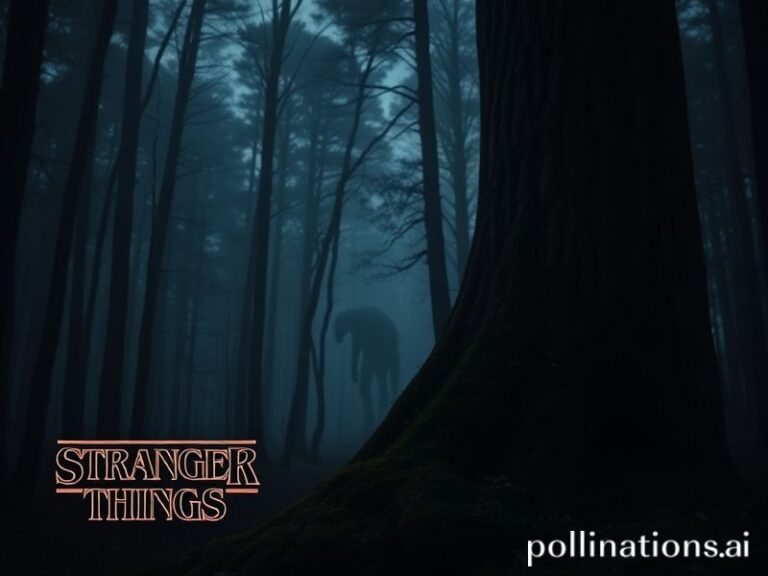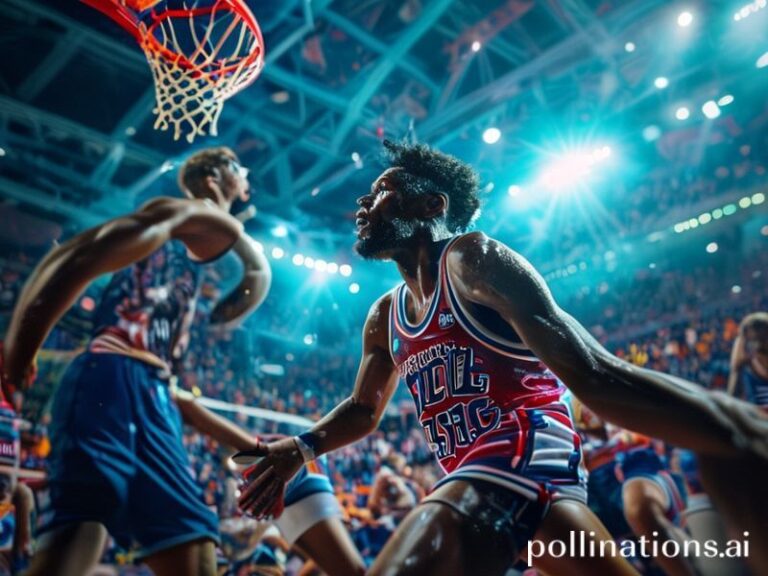Bubbles & Bylines: How a West Ham Fan Forum Became the World’s Favourite New Tragicomedy
West Ham Board Meets the “People’s Mic”: A Parable of Late-Capitalist Football from Stratford to Singapore
By our correspondent, still slightly jet-lagged from a cargo hold in Doha
LONDON — On a damp Wednesday evening, while the Thames did its usual impression of a forgotten soup, the West Ham United board of directors shuffled into a corrugated-steel community hall to face the “Fans’ Advisory Board” — a polite euphemism for 200 people who’ve spent the past decade learning the Latin names for every vein in David Sullivan’s neck. Security confiscated precisely three inflatable hammers and one artisanal focaccia, which tells you everything about modern football and modern bread.
The ostensible agenda: ticket pricing, the sporting director search, and why the club’s Instagram account now posts more slow-motion sunsets than actual goals. The subtext: whether twenty-first-century football can still pretend it is anything other than a leveraged ETF with chanting.
International observers tuned in because West Ham, despite sounding like a Dickensian cough, has become a global Rorschach test. In Jakarta, supporters’ clubs screen 3 a.m. kickoffs on office projectors and debate whether Lucas Paquetá’s price tag could have floated a small island nation. In Lagos, traders hawk counterfeit “Hammers” shirts stitched in the same sweatshops that once produced Arsenal’s dreams. And in Riyadh, consultants take notes on how to pacify ultras without accidentally nationalising them.
Wednesday’s gathering was therefore streamed live, subtitled in four languages, and interrupted by a VPN ad featuring a grinning alpaca — the universal symbol for “your data is definitely not safe.”
Inside the hall, the choreography was pure pantomime. Board members sat at folding tables like defendants at The Hague, clutching branded water bottles as if they might be asked to turn them into wine. Karen Brady — Baroness to her enemies, “the Iron Lady of the OS” to Wikipedia — opened with a PowerPoint slide titled “Listening & Learning.” A lone snort ricocheted off the back wall; it belonged to a season-ticket holder who once saw Julian Dicks eat a hot dog in one bite.
The fans, meanwhile, had colour-coded their rage. Red scarves for “Stop Serving Ketchup in Sachets.” Black scarves for “Sell the Club to Someone Who Doesn’t Google ‘What Is Offside?’” One man arrived in a full medieval plague doctor outfit, apparently to symbolise the club’s transfer policy.
Across the planet, the reactions were instructive:
• In Buenos Aires, River Plate socios watched and muttered, “At least our owners disappear people efficiently.”
• In Tokyo, a group of mild-mannered businessmen paused their bento boxes to marvel that English fans are allowed to say “liability” out loud.
• In New York, a hedge-fund analyst took notes titled “Anger Monetisation – Pre-IPO Learnings,” then asked Siri whether the London Stadium naming rights were still available.
The climax arrived when a 12-year-old in a wheelchair rolled to the microphone and asked why disabled seating is located where GPS goes to die. The board responded with the international language of middle management: “robust stakeholder engagement going forward.” Somewhere in Silicon Valley, an AI bot filed that phrase under “future apology template.”
By 9:47 p.m. local time, a compromise had been reached: the price of a pie would rise by only 20 pence, but the club would “explore” plant-based options, which translates to “we’ll think about it while flying to Dubai.” Everyone left pretending this was democracy in action, instead of a focus group for grief.
What does it all mean, beyond the obvious conclusion that humans will pay to be disappointed if the branding is nostalgic enough? Simply this: as the world’s ills — climate collapse, wealth concentration, the slow-motion TikTokification of war — grow too large to grasp, we shrink our passions to 90-minute morality plays where the villain wears a club tie.
West Ham’s little town-hall opera is therefore the perfect allegory for our age: local anger livestreamed to global spectators who recognise the ritual but not the accents. The stakes feel huge until you remember the planet is on fire and this particular fire drill ends with a wave to the away end.
Still, the fans sang “I’m Forever Blowing Bubbles” as they filed out, because hope is the most transfer-resistant asset of all. The bubbles drifted up, caught the stadium lights, and burst somewhere over the A12 — a gentle reminder that every empire, like every cross-field pass, eventually goes out for a throw-in.







